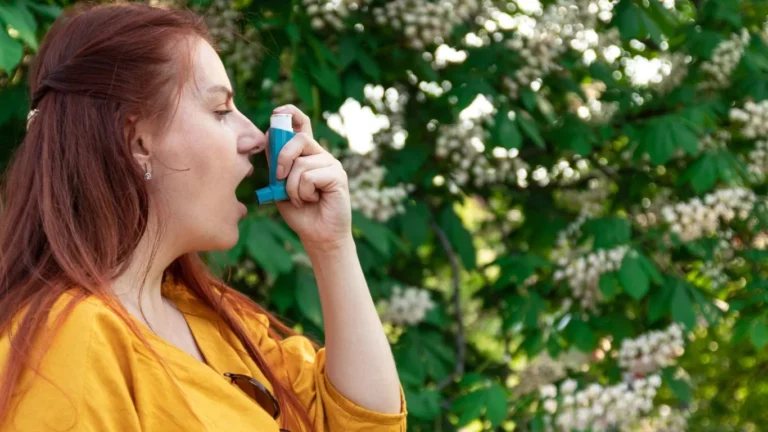Can Herbal Tea Help GERD? Discover How Herbal Teas Can Soothe Your Digestive Issues 🍵
Can Herbal Tea Help GERD? 🍵
So, you’re dealing with GERD, huh? If you’ve got that annoying heartburn, chest discomfort, or the whole acid reflux thing going on, you might be wondering, “Can herbal tea really help with all this?” Well, I’ve been curious about it myself, and after looking into it, there are a few teas that might help soothe those symptoms. Let’s break it down and chat about whether herbal tea is a real game-changer for GERD.
What the Heck is GERD? 🤔
Before we start getting all herbal, let’s talk about GERD for a second. Basically, it’s when stomach acid decides to go on a little adventure and leaks up into the esophagus. This can lead to all sorts of fun stuff like heartburn, regurgitation, and a lot of other stuff that makes you wish you could just feel normal again.

Common Symptoms of GERD
- That burning sensation in your chest (hello, heartburn)
- Sour taste in the mouth, especially after eating
- Trouble swallowing or feeling like food gets stuck
- A dry cough or hoarseness (especially at night)
I know, not fun at all. So, you’re probably here because you want something natural to help out with this, and that’s where herbal tea comes in.
Can Herbal Tea Actually Help With GERD? 🌿
Now, the real question: Can a cup of herbal tea actually help with GERD, or is it just another Pinterest trend? Well, turns out, there are a few herbal teas that might give your digestive system some love and help calm things down. Here are some that might work for you:
1. Ginger Tea 🍃
Ginger’s been around forever for a reason. It’s great for soothing an upset stomach, and it can help with nausea, bloating, and indigestion. Some studies even suggest it might help with acid reflux by calming the stomach and reducing inflammation.

My experience: I’ve tried ginger tea after a big meal when I felt my stomach acting up, and I’ve noticed it does help settle things. It’s not a magic cure, but it definitely helps me feel more comfortable.
How to use it: Fresh ginger or ginger tea bags work fine. Just brew a cup after eating, and see if it helps. It’s great if you’ve got that “full” feeling after a meal.
2. Chamomile Tea 🌼
You probably already know chamomile as the go-to for helping you sleep, right? But it’s also great for your stomach. Chamomile has anti-inflammatory properties that might help reduce irritation in your stomach and esophagus. Plus, it’s super soothing, so it can help calm your nerves if you’re feeling stressed (which, let’s be real, stress and GERD don’t mix).
My experience: I love drinking chamomile tea before bed. Not only does it help with my digestion, but it also helps me wind down after a hectic day.
How to use it: Just steep a bag of chamomile tea or some dried flowers before bedtime. It’s a nice way to end the day, especially if you struggle with nighttime GERD.
3. Licorice Tea 🍬
Licorice isn’t just for candy lovers—turns out, it might be helpful for GERD too. It’s been used in traditional medicine for digestive issues for ages. Licorice contains compounds that could help protect the stomach lining and soothe inflammation.
How to use it: If you want to give it a try, look for deglycyrrhizinated licorice (DGL) because regular licorice can be a little too strong on the system. Drink it about 20–30 minutes before meals for the best results.
4. Peppermint Tea 🍃
Okay, peppermint might seem like an obvious choice, right? I mean, it’s the go-to for stomach problems. But here’s the thing—peppermint can actually make things worse for some GERD sufferers because it can relax the lower esophageal sphincter (LES), which is the muscle that keeps stomach acid where it belongs. For some, peppermint may make reflux worse.
My experience: I used to love peppermint tea, but I noticed it made my heartburn worse. So, I switched it out for ginger and chamomile, and that worked much better.
How to use it: If peppermint doesn’t seem to aggravate your GERD, drink it after meals to help with digestion. But if you feel like it makes things worse, just skip it.
Troubleshooting Common Issues 🛠️
So, what if you try herbal tea and it’s not working as well as you hoped? Here are some common issues people run into:
Issue #1: Herbal Tea Doesn’t Work Right Away
Herbal remedies take time to show their full effects. You’re not going to drink a cup of ginger tea and magically feel better in five minutes.
Solution: Stick with it. Drink your herbal tea consistently for a couple of weeks. It’s all about getting your system to adjust.
Issue #2: Some Teas Make Symptoms Worse
Like I mentioned, peppermint tea might not be for everyone. Some people might find that certain herbs make their reflux worse instead of better.
Solution: If peppermint is giving you trouble, try chamomile or ginger tea instead. Everybody reacts differently, so don’t be afraid to experiment.
Issue #3: Stomach Upset or Nausea After Tea
Sometimes, herbal teas can upset your stomach if you’re sensitive to certain ingredients. If you’re feeling queasy after drinking a tea, it might not be the right one for you.
Solution: Try a milder tea, like chamomile or ginger, and make sure you’re not overdoing it.
Case Studies / Success Stories 📈
Case Study #1: Sarah’s Journey with Chamomile Tea
Sarah, a friend of mine, had been dealing with GERD for years. She tried a bunch of medications, but nothing seemed to help long-term. One day, she started drinking chamomile tea before bed and noticed a difference. After a few weeks, her nighttime reflux had calmed down, and she was able to sleep better. Now, she swears by it and drinks it every night.
Case Study #2: Mark’s Ginger Tea Success
Mark had chronic heartburn that came and went, especially after meals. He started drinking ginger tea after lunch and dinner, and he noticed his symptoms lessened over time. Now, he’s much more comfortable after eating, and he feels like his digestion is smoother.
Key Takeaways / Summary ✨
Herbal tea can absolutely help with GERD, but it’s not a magic fix. Certain teas—like ginger, chamomile, and licorice—might help soothe your stomach and reduce reflux. However, everyone’s different, so you’ll want to experiment and find what works best for you.
Key takeaways:
- Ginger, chamomile, and licorice teas are great options for soothing GERD symptoms.
- Give it some time—herbal remedies take a little while to work.
- If a certain tea doesn’t sit well with you, try something else!
FAQs ❓
- Can herbal tea cure GERD? Nope, it won’t cure GERD. But it can help reduce the symptoms and make you feel a lot more comfortable.
- Is it safe to drink herbal tea every day? Generally, yes! But you should check with your doctor first if you’re on meds or dealing with any health issues.
- How soon will herbal tea help? It can take a few days or even weeks of drinking it regularly to notice any significant changes, so be patient.
Disclaimer ⚖️
Just a heads-up—this blog is for informational purposes only. Always talk to your doctor before trying new remedies, especially if you’ve got a chronic condition like GERD.
Call to Action 🚀
Have you tried herbal tea for your GERD? Let me know what works for you, or drop a comment if you have any questions! And hey, don’t forget to sign up for the newsletter for more tips on natural remedies.

Camellia Wulansari is a dedicated health writer specializing in digestive disorders, contributing valuable insights and information to the health and wellness community. With a passion for promoting well-being through knowledge, Camellia serves as a reliable source of expert content on healthusias.com.






